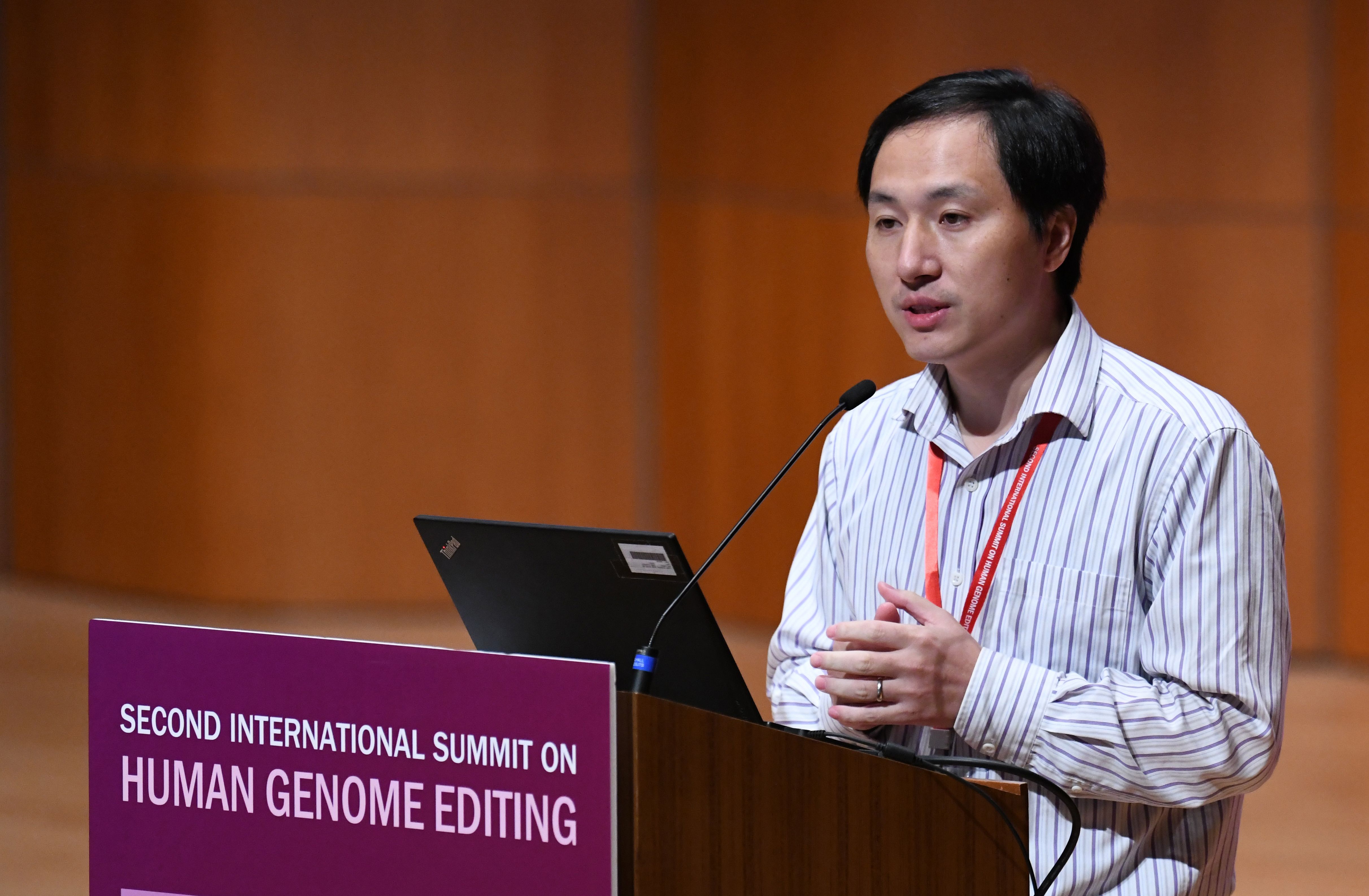China sentences 3 researchers involved in creating 1st gene-edited babies


A free daily email with the biggest news stories of the day – and the best features from TheWeek.com
You are now subscribed
Your newsletter sign-up was successful
A court in Shenzhen, China, sentenced a Chinese scientist and two researchers Monday for creating the world's first genetically edited babies last year, China's official Xinhua News Agency reported. The lead scientist, He Jiankui, was handed three years in prison and a fine of 3 million yuan ($430,000) on charges of falsifying ethical review documents, practicing medicine without a license, and other infractions. The two researchers who helped He got lesser sentences: Zhang Renli was handed two years in prison and a 1 million yuan fine, and Qin Jinzhou received 18 months in jail, but with a two-year reprieve, and a 500,000 yuan fine.
"The three accused did not have the proper certification to practice medicine, and in seeking fame and wealth, deliberately violated national regulations in scientific research and medical treatment," Xinhua reported, citing the court's ruling. "They've crossed the bottom line of ethics in scientific research and medical ethics." The news agency said He and his team edited the genes of three children born to two women.
He shocked the medical and scientific world in November 2018 when he announced that he had used the CRISPR gene-editing technology to genetically modify the embryos of infant twin girls to disable a gene that allows the AIDS virus to enter a cell. He disappeared soon after making his announcement, apparently detained by Chinese authorities. It's not clear if the experiment worked on the two unidentified girls He discussed publicly, but the experiment was widely condemned by medical ethicists and researchers around the world.
The Week
Escape your echo chamber. Get the facts behind the news, plus analysis from multiple perspectives.

Sign up for The Week's Free Newsletters
From our morning news briefing to a weekly Good News Newsletter, get the best of The Week delivered directly to your inbox.
From our morning news briefing to a weekly Good News Newsletter, get the best of The Week delivered directly to your inbox.
A free daily email with the biggest news stories of the day – and the best features from TheWeek.com
Peter has worked as a news and culture writer and editor at The Week since the site's launch in 2008. He covers politics, world affairs, religion and cultural currents. His journalism career began as a copy editor at a financial newswire and has included editorial positions at The New York Times Magazine, Facts on File, and Oregon State University.
-
 How to Get to Heaven from Belfast: a ‘highly entertaining ride’
How to Get to Heaven from Belfast: a ‘highly entertaining ride’The Week Recommends Mystery-comedy from the creator of Derry Girls should be ‘your new binge-watch’
-
 The 8 best TV shows of the 1960s
The 8 best TV shows of the 1960sThe standout shows of this decade take viewers from outer space to the Wild West
-
 Microdramas are booming
Microdramas are boomingUnder the radar Scroll to watch a whole movie
-
 Nobody seems surprised Wagner's Prigozhin died under suspicious circumstances
Nobody seems surprised Wagner's Prigozhin died under suspicious circumstancesSpeed Read
-
 Western mountain climbers allegedly left Pakistani porter to die on K2
Western mountain climbers allegedly left Pakistani porter to die on K2Speed Read
-
 'Circular saw blades' divide controversial Rio Grande buoys installed by Texas governor
'Circular saw blades' divide controversial Rio Grande buoys installed by Texas governorSpeed Read
-
 Los Angeles city workers stage 1-day walkout over labor conditions
Los Angeles city workers stage 1-day walkout over labor conditionsSpeed Read
-
 Mega Millions jackpot climbs to an estimated $1.55 billion
Mega Millions jackpot climbs to an estimated $1.55 billionSpeed Read
-
 Bangladesh dealing with worst dengue fever outbreak on record
Bangladesh dealing with worst dengue fever outbreak on recordSpeed Read
-
 Glacial outburst flooding in Juneau destroys homes
Glacial outburst flooding in Juneau destroys homesSpeed Read
-
 Scotland seeking 'monster hunters' to search for fabled Loch Ness creature
Scotland seeking 'monster hunters' to search for fabled Loch Ness creatureSpeed Read
